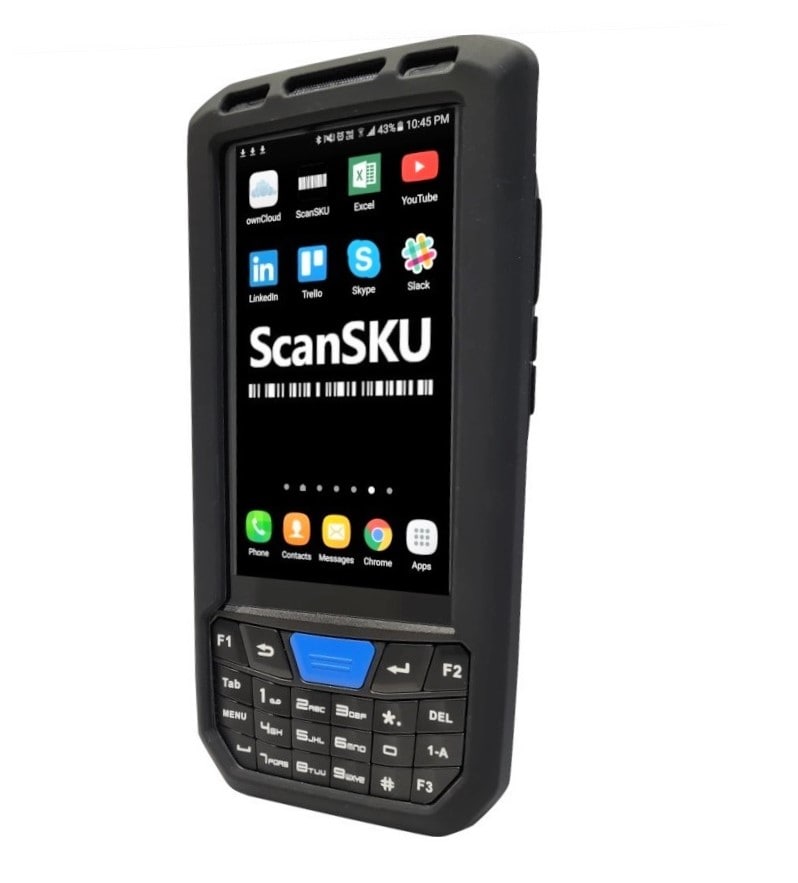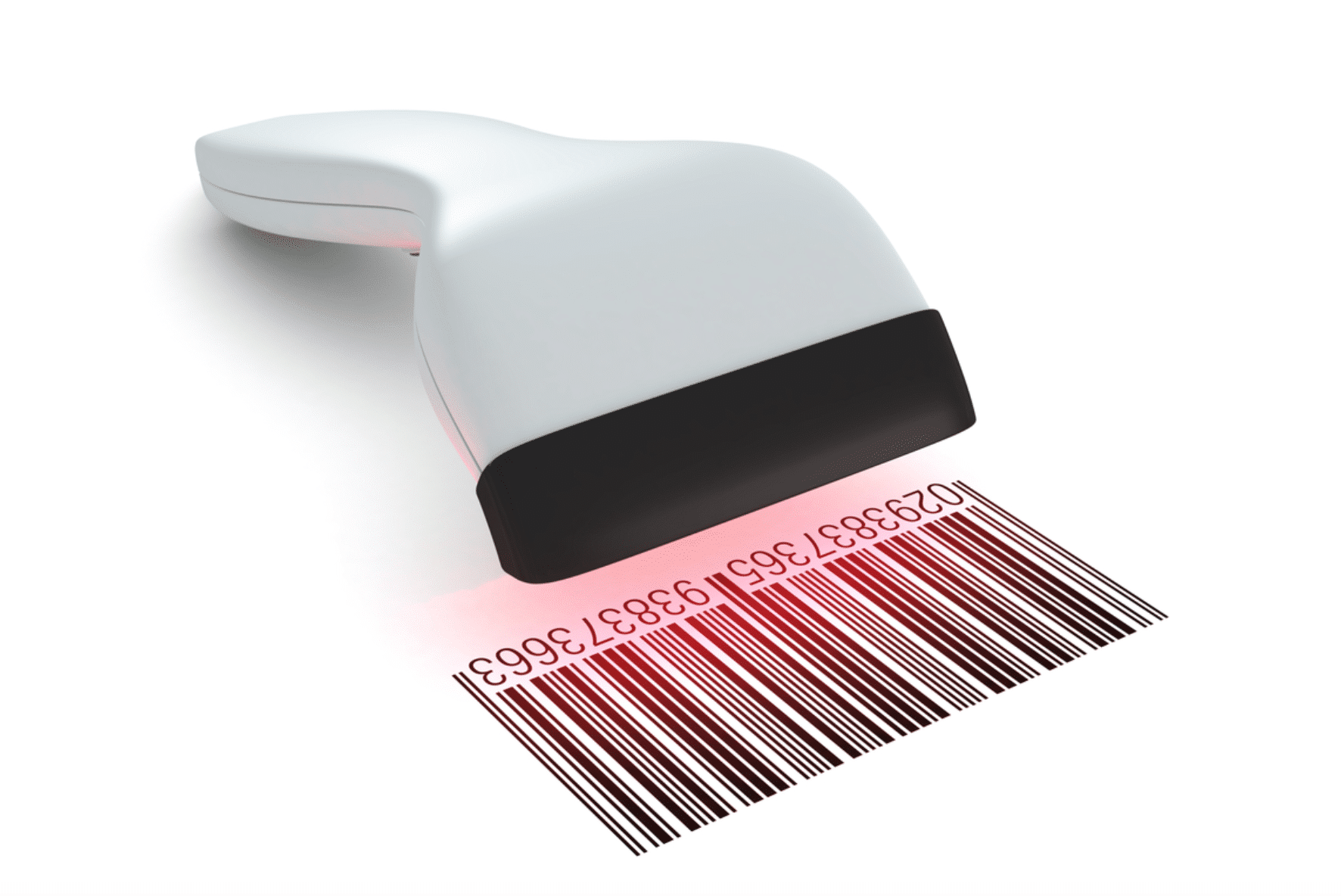USB-Compatible Barcodes Scanners for Seamless Setup
Wiki Article
Picking the Right Barcode Scanner for Your Service Needs
Selecting the appropriate barcode scanner for your business requires a nuanced understanding of your specific functional demands and ecological problems. Elements such as scanner type, speed, and compatibility with existing systems play a pivotal duty in establishing the appropriate selection.Recognizing Barcode Scanner Kind
When it concerns selecting a barcode scanner, understanding the numerous kinds offered is vital for conference certain service requirements. Barcode scanners can be categorized into several types, each developed for different applications and atmospheres.Fixed-mount scanners, on the other hand, are developed for high-volume scanning applications, usually located in setting up lines or checkout counters. These scanners are installed in a fixed placement, permitting for fast scanning of several products in sequence.
An additional kind is the mobile computer, which incorporates scanning capabilities with calculating power. These devices are optimal for field operations or storehouse monitoring, allowing information collection and real-time supply monitoring. In addition, there are industrial scanners that are built to hold up against harsh atmospheres, such as extreme temperature levels or direct exposure to dirt and dampness.

Key Functions to Think About
What necessary attributes should businesses prioritize when selecting a barcode scanner? Most importantly, scanning speed is vital, as faster scanners enhance functional effectiveness, specifically in high-volume settings. The scanner's capacity to review numerous barcode layouts is additionally essential; guarantee it sustains popular types like QR codes, UPC, and Code 128 to accommodate diverse stock products.Toughness is an additional vital function, especially for companies in rugged setups. Seek designs that are developed to endure drops, dust, and moisture. Additionally, take into consideration the connection choices available; whether you prefer USB, Bluetooth, or Wi-Fi, the appropriate connectivity can enhance assimilation with existing systems.

Analyzing Your Service Environment
To properly select a barcode scanner, organizations need to analyze their certain operational atmosphere. This assessment consists of assessing the physical design of the work space, the nature of the products being scanned, and the normal problems under which scanning occurs. As an example, a retail atmosphere may need portable scanners that can swiftly refine deals at the check out, while a warehouse setup may gain from ruggedized scanners developed to withstand harsher conditions.
Additionally, think about the volume of scanning needed. High-throughput settings might demand advanced scanning technologies, such as fixed-position scanners or mobile phones that can run successfully in busy scenarios. The integration capabilities with existing stock administration systems additionally play a crucial role; guarantee the selected scanner can effortlessly attach with software systems in operation.
Furthermore, analyze the potential for growth and scalability. A scanner that meets present demands may not be adequate as company expands. By completely analyzing these factors, services can pick a barcode scanner that not only fulfills instant demands however additionally sustains lasting operational efficiency and adaptability. This tactical strategy eventually contributes to smoother procedures and improved efficiency.
Budgeting for Your Scanner
Having analyzed the operational setting and determined the specific demands for a barcode scanner, the next action includes careful budgeting to make certain a clever monetary investment. Developing a budget plan begins with establishing the general costs related to the scanner, including preliminary purchase price, functional costs, and potential upkeep fees.When selecting a barcode scanner, think about the variety of available choices, from handheld gadgets to fixed-position scanners, as prices can differ substantially. It is necessary to stabilize cost with capability; deciding for a much more budget friendly version might lead to raised functional inefficiencies if it does not satisfy your organization demands.
Along with the equipment, variable in costs associated with software program, training, and possible upgrades. While it might be alluring to reduce upfront expense, buying a quality scanner that straightens with your functional demands can generate long-lasting cost savings via improved performance and decreased downtime.
Last but not least, consider the overall price of ownership, which includes the scanner's lifespan and prospective resale value. By thoroughly planning check this site out your spending plan, you can make certain that your investment in a barcode scanner will improve your functional performance and financial efficiency.
Integration With Existing Solution
Incorporating a barcode scanner with your existing systems is crucial for maximizing its efficiency and ensuring seamless procedures. barcodes scanners. A well-integrated scanner boosts operations effectiveness, minimizes errors, and increases data processing. When selecting a barcode scanner, consider compatibility with your current software application and hardware framework, including your supply management systems, point-of-sale (POS) systems, and venture resource planning (ERP) optionsEvaluate whether the scanner uses conventional protocols such as USB, Bluetooth, or Wi-Fi, which can assist in simple combination. In addition, evaluate whether the scanner's software application provides APIs or SDKs that enable customization and assimilation with proprietary systems. This is specifically important for businesses with unique functional needs.
Moreover, consider the scalability of the scanning option. As your business expands, your systems should have the ability to suit additional scanners and take care of increased information volumes without substantial reconfiguration. Ultimately, investing in a barcode scanner that seamlessly integrates with your existing systems will certainly produce lasting benefits, boosting precision, effectiveness, and general performance within your procedures. Take the time to extensively evaluate your combination requires prior to purchasing choice.

Conclusion
In conclusion, selecting an ideal barcode scanner requires a detailed analysis of different aspects, including scanner types, vital functions, and the i loved this particular service atmosphere. my sources The right barcode scanner offers as an essential tool in enhancing procedures and helping with efficient inventory management.Report this wiki page